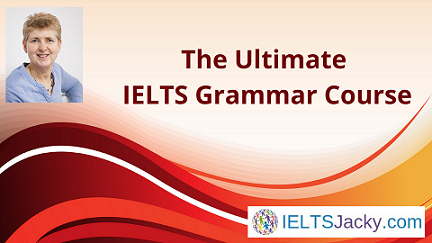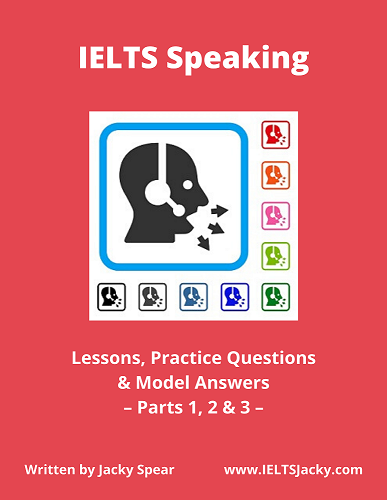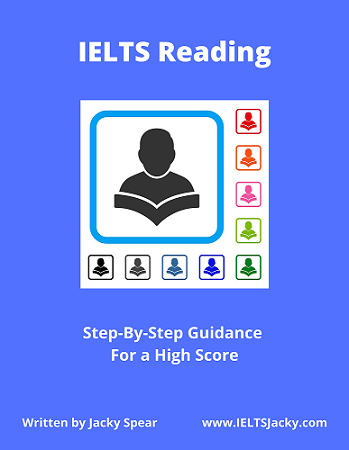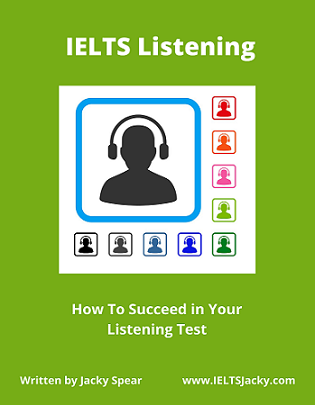IELTS Speaking Part 1
On this page, we’ll be looking at both IELTS Speaking Part 1 and the pre-test introduction. Here are some of the things we’ll be covering:
- What happens in the pre-test introduction
- Common topics for IELTS Speaking Part 1
- Mistakes to avoid
- 7 simple methods for developing your answers
- Sample questions & answers
Before the test starts, you’ll have a brief conversation with the examiner as they introduce themselves, confirm who you are and check your identity. The questions they’ll ask you in this pre-test introduction aren’t marked but they are your first chance to make a good impression.
Don’t forget to smile and don’t be put off if the examiner doesn’t seem very friendly. Perhaps they’re longing for a coffee as they haven’t had a break for two hours or they’ve just listened to 20 previous candidates with such poor pronunciation that they could barely understand them. Remember, they are just doing a job.
With the pre-test introduction complete, the actual test will start and you’ll be marked on everything you say from now on.
Key facts about IELTS Speaking Part 1
1) Time – 4-5 minutes.
2) You’ll be asked questions about you and your life.
Common topics:
- Your home
- Your family
- Your work or study
- Your home town
- Your likes or dislikes
- Your interests
3) You will only be assessed on your English language skills, not on the content of what you actually say.
There are hundreds of possible questions the examiner could ask so you can’t predict what you’ll get, but they will come from just a handful of topics. It will be easy to think up answers as the questions are all about you, a subject you know everything about. You can’t possibly give a wrong answer.
 You might be asked about your home town.
You might be asked about your home town.
Part 1 Mistakes to Avoid
Ensure you don't make these common mistakes:
- Don’t give very short answers.
- Don’t give very long answers.
- Don’t memorise answers.
- Don’t overthink answers.
- Don’t freeze if you get ‘unusual’ questions.
The examiner wants to hear you talk, so giving single word or very short answers to questions isn’t going get you many marks.
On the other hands, don’t ramble on and on. They have around 12 questions to ask you in 4-5 minute. If you spend 2 of those minutes answering a simple question on, for example, where you live, there won’t be time for all the questions and you’ll miss out on some of the marks.
Want to watch & listen to this section?
Click on this video.
IELTS Speaking Part 1 answers should be 2-3 sentences long.
Never memorise answers. It’s a waste of time as you won’t know what questions you’re going to get. If you do use a memorised answer, it will be obvious to the examiner. Your speech won’t be as fluent as when giving a spontaneous answer and you could actually lose marks. This is a test of your spoken language, not your memory. Have confidence in your skills and let your answers flow naturally.
Your fluency will also suffer if you overthink your answers. The examiner isn’t trying to discover how intelligent you are or whether you can devise clever answers, they just want to hear you speak. Answer their questions using appropriate language and they’ll be happy.
What does sometimes throw candidates in IELTS Speaking Part 1 is getting an ‘unusual’, random question such as “What do you think of robots?” These types of questions seem so strange that they can stop people in their tracks. They either stumble and stutter over their words or literally freeze if they can’t think what to say.
 What do you think of robots?
What do you think of robots?Firstly, it doesn’t matter what you say as long as you say something.
Secondly, it’s fine to say that the subject is something you’ve never thought about. Say this then just give the best answer you can come up with.
So, with our robot question, you might come up with an answer like:
“They aren’t something I’ve ever thought much about, but it would be great to have one that did the housework and cooked dinner occasionally.”
The main thing is not to panic if an unusual question comes up.
Calm those nerves
You are bound to be nervous during your test, especially at the start. Use IELTS Speaking Part 1 as a warm-up for the rest of the test. The questions will be easy for you to answer, so try to relax and calm your nerves. Slow, deep breaths can help.
Developing your answers
Giving the correct length answers is very important. Which of these answers to this question is the best?
Question: Do you like music?
Kasia: Yes, I do.
Roza: Most definitely. I go to lots of live gigs as I’ve got a friend who’s in a band. At home, I like to relax to classical music.
Both Kasia and Roza have answered the question but Roza’s answer is clearly the better one as it’s longer and shows off her ability to communicate well in English. Kasia’s answer gives the examiner very little to assess her on.
Here’s a great rule to follow to get the perfect length answer to Part 1 questions:
- Answer the question
- Add an extra piece of information
This extra information could be an added detail or background information. If you do this, you won’t go far wrong.
Paraphrasing
The examiner will be particularly impressed if you are able to paraphrase their question rather than repeating the vocabulary they used. You don’t need to do this for every question but do so when it's easy to replace key words with synonyms.
Have a look at this IELTS Speaking Part 1 question and the two sample answers. Which is the best answer, and why?
Want to watch & listen to this section? Click on this video.
Question: Have you visited any foreign countries?
Answer 1: Yes, I’ve visited two foreign countries, the UK and Egypt. My favourite foreign country was the UK because it’s so different to my own country. Another country I want to visit is France.
Answer 2: Yes, I’ve been abroad a couple of times, first to the UK, then to Egypt. I particularly enjoyed the UK because it’s so different to my own country. I’d also love to travel to France.
Answer 2 is best.
Again, both versions answer
the question but answer 1 repeats the verb ‘to visit’, and the words ‘foreign’
and ‘countries’, all of which are in the question, several times.
In answer 2, the question has been paraphrased with the synonym ‘abroad’, and ‘to travel to’ has been used instead of ‘visit’.
Take a moment to really focus on these differences. Also, compare the language used to express which country was their favourite.
The final sentence, about where the speaker would like to visit next, is not strictly necessary, but is in context with the question so is fine. It also enables the speaker to use the future tense.
 Tower Bridge, London – a famous UK landmark.
Tower Bridge, London – a famous UK landmark.
Answer the question
Here are two answers to another question. Which do you think is the best?
Question: How long have you been learning English?
Tarik: I began studying English at school when I was just six years old and I’ve been working on my language skills ever since. I’m 27 now so I’ve been an English student for 21 years.
Hassan: I’ve wanted to learn English since I was very young. Luckily I had a good teacher at school who made the lessons really interesting. I enjoyed English so much that I decided to keep learning when I left.
Tarik gives the best answer. He answers the question and shows good language skills and paraphrases the question well.
Hassan also has a good command of the English language but he doesn’t actually answer the question. This will lose him marks. Don’t make this mistake.
7 Ways To Develop An Extended Answer
In IELTS Speaking Part 1, the examiner will be looking for a good range of vocabulary and grammatical structures. Developing your answers in different ways will ensure that you impress them with your language skills.
Here are 7 different ways you can extend your answers:
1) Explanation
2) Combined Details
3) Examples
4) Frequency
5) Contrast
6) Past Comparisons
7) Future
In the following examples, we’re going to work with one question and look at 7 different ways of developing an extended answer to it.
I’m not going to worry too much about paraphrasing the question in these answers as I want to focus on other aspects of sentence structure.
Want to watch & listen to this section? Click on this video.
Question: How often do you socialise with friends?
Simple answer: I socialise with friends several times a week.
1) Explanation
The easiest way to add extra information to a simple answer is to include an explanation. Connective words like ‘because’ are ideal for this.
Extended answer: I socialise with friends most evenings after work and at weekends because I live on my own which often gets me down. Going out with friends or having them round means that I don’t feel so lonely.
2) Combined Details
Another simple way to extend your answer is to join two pieces of information with the word ‘and’.
Extended answer: During the week, I generally meet up with friends two evenings after work and on Saturdays, I go shopping with my best friend. Sundays I save for seeing my family.
3) Examples
A great way to develop your answers in IELTS Speaking Part 1 is to add an example.
Extended answer: I usually see my closest friends several times a week. Like this week, I’m meeting my best friend for a drink this evening, then we’re going to the cinema with some girls from work on Friday, and on Saturday we’re all meeting up at a party.
 Socialising with friends at a party.
Socialising with friends at a party.4) Frequency
Words expressing frequency are invaluable for developing answers. Common words include:
- always
- usually
- normally
- generally
- often
- frequently
- sometimes
- occasionally
- seldom
- hardly ever
- rarely
- never
Extended answer: I normally see friends most days of the week, especially my best friend who I generally catch up with after work. At the weekends, a group of us often go to the park to play football or chill out.
5) Contrast
Connectives that express contrast are equally useful for extending answers. For example,
but although however even though despite while
Extended answer: I try to meet up with friends several times a week but rarely on a Sunday because that’s when I visit my family. However, every few months I cook a barbeque Sunday lunch and invite both my friends and family around.
6) Past Comparisons
Sometimes in IELTS Speaking Part 1, you’ll want to compare the present situation to what happened in the past. The phrase ‘used to’ is useful here.
Extended answer: I used to socialise with my friends every day but I don’t see them so often now that I have a baby and can’t go out in the evenings so much. We probably meet up just a few times a month now.
7) Future
Finally, there will be times when you want to make a comparison between what happens now and what you think will happen in the future or what you want or intend to do in the future.
Extended answer: Currently, I hardly see my friends at all as I spend all my spare time studying for my IELTS exam. When I pass the exam, I'll meet up with my mates most evenings like I used to do and spend weekends with them as well.
Use these 7 methods to create your own answers to the question “How often do you socialise with friends?”
You'll find lots more IELTS Speaking Par1 questions to practise with on the topic vocabulary pages listed in the menu to the right. àààà
And be sure to download my 30 Free IELTS Speaking Practise Cards – 330 questions on 30 different topics, including 120 Part 1 questions.
Find out more and download them here:
IELTS Speaking Practise Questions – FREE Download
It is only by practising your speaking skills that your English will improve and your confidence grow. Having these resources to hand makes this easy so be sure to make full use of them.
Put in the work now and getting a high score for IELTS Speaking Part 1 is very achievable.
Like this page?
More IELTS Speaking Pages
You'll find more help to answer IELTS Speaking Part 1 questions, and to get a high score for all parts of the Speaking test, on these pages:
IELTS Speaking Test: Know the format & understand what you’ll be assessed on. Discover the main reason for low scores & how to avoid this big mistake.
IELTS Speaking Tips: 9 top tips to increase your chances of getting a high score
IELTS Speaking Topics: Discover 40+ common subject areas for the IELTS Speaking Test.
Part 2
IELTS Speaking Part 2: Test format, understanding cue cards & 5 test mistakes to avoid.
Part 2 Planning Strategy - Method 1: ‘question prompt’ + planning notes & sample answers.
Part 2 Planning Strategy - Method 2: ‘brainstorming’ + planning notes & sample answers.
Part 2 Planning Strategy - Method 3: ‘the 5 senses’ planning notes & sample answers.
Part 2 Introduction: How to begin
your IELTS Speaking Part 2 talk & top tips for gaining extra marks.
IELTS Speaking Part 3: 6 common types of questions & how to answer them.
IELTS Speaking Practice: Massively improve your speaking skills by learning how to think in English.





















